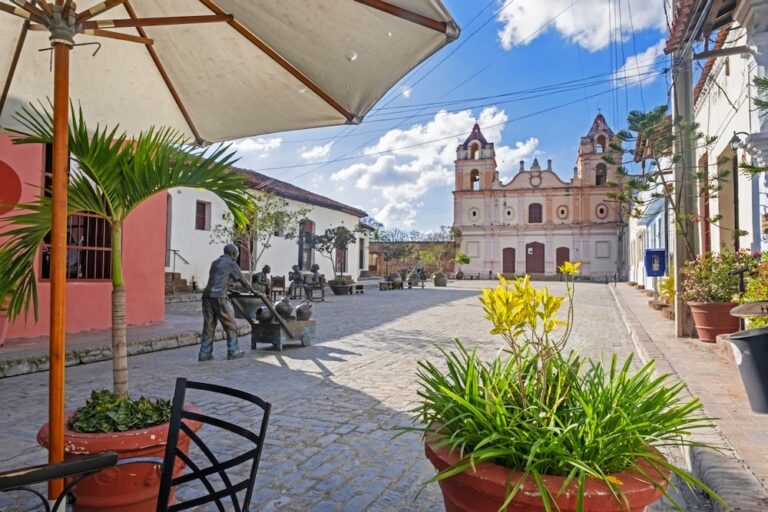(RSF/IFEX) – RSF has voiced alarm on learning that independent journalist Oscar Mario González Pérez, of the Grupo de Trabajo Decoro news agency, is to be prosecuted under Law 88 protecting Cuba’s “national independence and economy.” González was arrested on 22 July 2005 in Havana. He faces up to 20 years in prison. “The announcement […]
(RSF/IFEX) – RSF has voiced alarm on learning that independent journalist Oscar Mario González Pérez, of the Grupo de Trabajo Decoro news agency, is to be prosecuted under Law 88 protecting Cuba’s “national independence and economy.” González was arrested on 22 July 2005 in Havana. He faces up to 20 years in prison.
“The announcement of a trial is the same as the announcement of a conviction in Cuba,” RSF said. “González is going to join the long list of 21 journalists who have been imprisoned since March 2003 for trying to practice their trade freely and for not sharing the government’s views.”
González was arrested at the same time as 33 other dissidents in Havana, just before a planned demonstration outside the French embassy to criticise the “normalisation” of relations between Cuba and the European Union (EU). Nine of the 33 are still being held, including two others who are to be prosecuted under Law 88, lawyer René Gómez Manzano and political activist Julio César López.
Describing the arrests as a cruel reminder of the “Black Spring” crackdown of 2003, RSF accused the Cuban regime of “once again revealing the full extent of its arbitrary power and paranoia” and said it was no coincidence that a journalist, a lawyer and a political activist had been singled out.
Noting that those arrested had wanted to alert the EU to the human rights situation in Cuba, the organisation said it had written to Prime Minister Tony Blair of Britain, which currently holds the EU presidency, asking the EU “to reconsider its position as regards Cuba and to apply the necessary pressure so that all the dissidents are released.”
González’s daughter Elena Isaieva, who lives in exile in the Swedish city of Uppsala, told RSF: “My father has been taken to four different police stations since his arrest. A Havana judge told him about his trial yesterday morning. The trial will probably be quick and the sentence heavy. My father is 61. It is as if he were sentenced to death. Nonetheless, I remained hopeful until the last moment.”
No date for the trial has yet been set.
When González was summoned and questioned by two state security agents in Havana on 24 March, he was threatened with never seeing his family again if he continued to work as a journalist. He was offered the chance to go to Sweden where his daughter lives, but he refused.
He told RSF afterwards that he would not give up being a journalist and would continue to write. “That is the way he is, he will never give up,” his daughter told RSF.
Three of the journalists who have been in prison since March 2003 and who were convicted under Law 88 are members of the Grupo de Trabajo Decoro news agency. They are Héctor Maseda Gutiérrez (who is serving a 20-year prison sentence), Omar Moisés Ruiz Hernández (who was sentenced to 18 years) and José Ubaldo Izquierdo Hernández (sentenced to 16 years).
An emergency law promulgated in March 1999, Law 88 has the stated aim of “responding to repeated attacks by the United States on Cuba’s independence and sovereignty” by punishing “actions which, in accordance with imperialist interests, seek to subvert the nation’s internal order and destroy its political, economic and social system.” It overrides all preceding legislation and gives the regime a free hand to stifle all dissent on the pretext of resisting foreign aggression.


